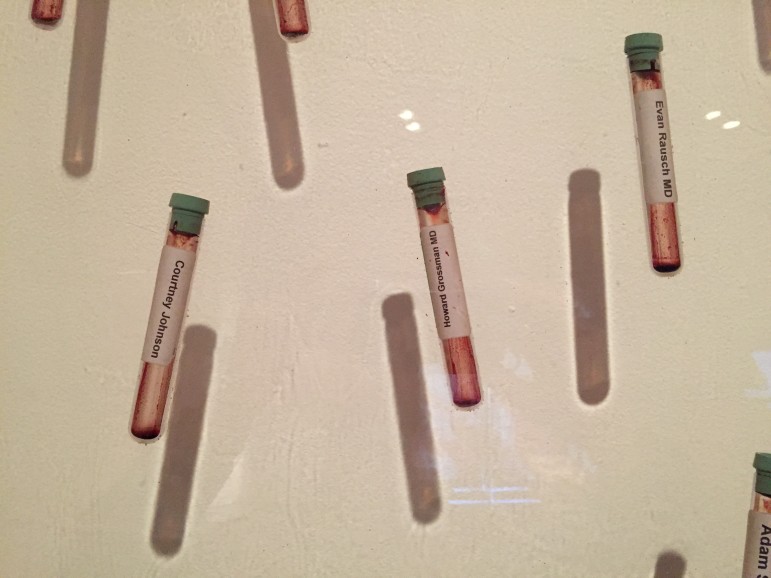Gay Men Blood Donors Not as Risky as Once Thought, Researchers Say
For decades, many gay men have been prohibited from donating blood. They were considered high-risk during the AIDS epidemic back in the 1980s. As of two years ago, they can donate if they’ve abstained from sex for a year, but many researchers say that’s unrealistic and unnecessary. Michael Saag, author and director of UAB’s Center for AIDS Research, tells WBHM’s Dan Carsen that testing is now much more sophisticated, so the FDA rules about who can donate blood should be less restrictive. Here are some highlights.
Heterosexuals Can Be Infected Too
“One possible rule change would be, let’s not think about who’s gay or straight; let’s just say any human being that is coming in to donate blood, if they have had sex with a person of unknown status in an unprotected sexual activity where they could have become infected in the last 30 days, they should defer donation and have them come back when they haven’t had such an exposure.”
Effects Beyond Discrimination
The current rules exclude an estimated 600,000 units of blood per year. The total U.S. yearly supply is about 13.6 million. Saag says, “With blood shortages coming and going, it would be nice to have as many donors and have that 600,000 units of blood safely available for us when we need it. Think Las Vegas, or think Houston with the hurricane. There can be all kinds of catastrophes where blood is needed. We want as much as we can.”
The Big Picture
“Every HIV provider and every HIV expert that I know are totally comfortable with changing the rules for blood donation for uninfected gay men, mostly because of a human rights issue and anti-discrimination … You want to discriminate if you’re protecting the population, but once you don’t have a compelling reason to keep a rule in place like this, then it’s only discriminatory and I don’t think anybody wants to discriminate in a situation that we know otherwise it’s going to be safe.”
Dr. Saag on whether politics and scientific illiteracy play into barriers to gay men giving blood:
Saag on what motivates him to do this work:
Saag on the state of the fight against HIV in Alabama:
Birmingham is 3rd worst in the Southeast for ozone pollution, new report says
The American Lung Association's "State of the Air" report shows some metro areas in the Gulf States continue to have poor air quality.
Why haven’t Kansas and Alabama — among other holdouts — expanded access to Medicaid?
Only 10 states have not joined the federal program that expands Medicaid to people who are still in the "coverage gap" for health care
Once praised, settlement to help sickened BP oil spill workers leaves most with nearly nothing
Thousands of ordinary people who helped clean up after the 2010 BP oil spill in the Gulf of Mexico say they got sick. A court settlement was supposed to help compensate them, but it hasn’t turned out as expected.
Q&A: How harm reduction can help mitigate the opioid crisis
Maia Szalavitz discusses harm reduction's effectiveness against drug addiction, how punitive policies can hurt people who need pain medication and more.
The Gulf States Newsroom is hiring a Community Engagement Producer
The Gulf States Newsroom is seeking a curious, creative and collaborative professional to work with our regional team to build up engaged journalism efforts.
Gambling bills face uncertain future in the Alabama legislature
This year looked to be different for lottery and gambling legislation, which has fallen short for years in the Alabama legislature. But this week, with only a handful of meeting days left, competing House and Senate proposals were sent to a conference committee to work out differences.








